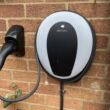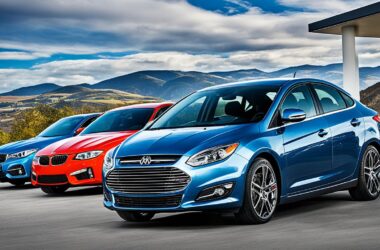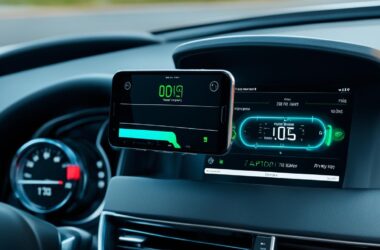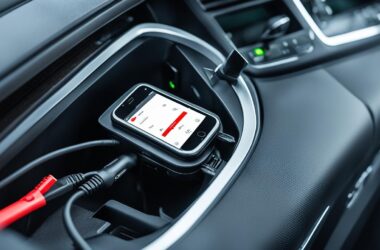Introduction
Charging an electric car without a driveway is often perceived as inconvenient, but there are numerous accessible and straightforward options available. In this article, we’ll explore various methods to charge your electric vehicle (EV) when you lack a personal driveway.
1. Supermarket Chargers
- Free at the Point of Use: Utilize free supermarket chargers while you shop.
- Customer Exclusive: Available only for customers.
- Time Limits: Some chargers have session time limits.
Supermarket charging stations, usually rated from 7kW to 22kW, offer convenience while shopping. However, be aware of customer exclusivity and potential time restrictions.
2. Charging Hubs
- Ultra-Rapid Charge Speeds: Hubs offer fast charging speeds, often up to 300kW.
- Ample Spaces: Charging hubs are proliferating and provide numerous charging spots.
- On-Site Facilities: Some hubs include cafes and lounges.
Major companies like Shell and Gridserve are establishing charging hubs, providing ultra-rapid charging options and enhancing the overall charging experience.
3. Zipcharge Go
- Portable Solution: Expected to be available in 2022.
- Compact and Convenient: Small enough to fit in your car’s boot.
- Battery Capacity: Offers up to 20-40 miles of range with an 8kWh battery.
Zipcharge Go, a portable EV battery, is a compact solution for on-the-go charging. It charges at 7.2kW, providing flexibility and convenience.
4. Council Car Park Chargers
- Typically 7kW or 11kW: Varying charging speeds in council car parks.
- Requires Parking Ticket: Access often requires purchasing a parking ticket.
- Growing Fast Charger Availability: Some locations offer fast chargers up to 50kW.
Council car park charging stations, with speeds up to 11kW, provide an option for those willing to invest in a parking ticket.
5. Motorway Services Chargers
- Ultra-Rapid Chargers: Speeds up to 350kW.
- Expensive Option: Typically costlier than home tariffs.
- Convenient for Long Trips: Useful for quick charging on highways.
Motorway services offer DC ultra-rapid charging stations, making them ideal for longer journeys. However, they tend to be more expensive than other options.
6. Car Dealership Chargers
- Free for Customers: Charging is free if you are a customer.
- Potential Dealership Hurdles: Chargers may be occupied by dealership staff.
Dealerships selling electric vehicles often have chargers for customer use. However, be aware that these spaces may be monopolized by dealership personnel.
7. Borrow Power from a Neighbour
- Suitable for Friendly Neighbourhoods: Requires a cooperative relationship.
- Payment Arrangement: You may need to pay in cash or with a friendly gesture.
- Infrequent Sessions Advised: Not suitable for regular use.
Building a rapport with an EV-owning neighbour might grant you access to their home charger, offering a cost-effective and convenient solution.
8. Co Charger
- Community Charging Scheme: Facilitates sharing among neighbours.
- Flexible Pricing: Hosts set their own charging rates.
- App-Based Booking: Sessions can be booked through the Co Charger app.
Co Charger simplifies home charger sharing within a community, allowing hosts to set prices and users to book sessions through a user-friendly app.
9. Lamppost Chargers
- Usually in Cities: Commonly found in city centres and towns.
- Varying Charge Speeds: Speeds range from 3.6kW to 22kW.
- Growing Availability: Plans for increased installations.
Lamppost chargers, though less common, are becoming more widespread, with companies planning extensive installations in various locations.
10. Pop-Up Charge Points
- Controlled via Smartphone: Operated through a dedicated app.
- Charge Speeds up to 22kW: Offers varying charging speeds.
- Rare but Innovative: Limited availability and often hard to locate.
Pop-up charge points, operated via a smartphone app, emerge when needed, providing an innovative but scarce charging solution.
Finding Your Nearest Chargers
Use tools like Zap-Map or Google Maps to locate charging points easily. Your EV may also have in-built navigation with charging stations as points of interest.
Frequently Asked Questions
Can you charge your electric car on the street?
- Yes, on-street public chargers are available in city centres and some residential streets.
Can you charge your electric car by running a cable over the pavement?
- Legally unclear; running cables on public highways is generally considered illegal due to safety concerns.
Conclusion
Charging an electric car without a driveway is feasible and, in many cases, convenient. With the expanding network










